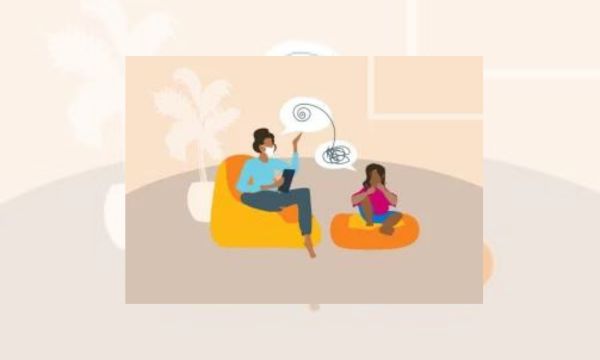Dealing with Cold and Flu in Children: A Parent’s Guide
As a parent, seeing your child get sick is a common concern, especially when it comes to colds and flu. Although these diseases are usually not life-threatening, they can be very uncomfortable for your child and challenging for you as a caregiver. In this article, we explore effective ways to manage and relieve cold and flu symptoms in children.
Ad
Recognize the Symptoms
Before we delve into remedies and preventive measures, it is important to understand the symptoms of colds and flu in children. Common symptoms include:
- Runny or stuffy nose: Children may have a runny or stuffy nose, making it difficult to breathe.
- Sore throat: A sore throat is often accompanied by pain and discomfort, making it difficult to swallow.
- Cough: A common symptom is a cough that may be dry or accompanied by coughing up phlegm.
- Fever: A mild fever is a classic symptom of colds and flu.
- Fatigue: Your child may feel unusually tired and sleepy.
- Fussiness: Children may become irritated by the discomfort they experience.
- Loss of appetite: It is common for children to experience a loss of appetite when they are not feeling well.
Home Remedies
If your child has a cold or flu, there are several home remedies you can use to ease the discomfort:
- Hydrate: Encourage your child to drink plenty of fluids, such as water, herbal teas, or clear soups. Staying hydrated helps thin mucus and relieve congestion.
- Rest: Make sure your child gets enough rest so that the body recovers faster. A well-rested body is better able to fight infections.
- Saline nose drops: Saline nose drops can help relieve nasal congestion so your child can breathe more easily.
- Humidifier: Using a humidifier in your child’s room can increase humidity and relieve congestion and coughing.
- Warm baths: Warm baths can keep your child comfortable and help lower fever.
Medicine
Check with your child’s pediatrician before administering over-the-counter medications. They can recommend appropriate options based on your child’s age and symptoms. Never give aspirin to children with viral infections because it can cause a rare but serious disease called Reye’s syndrome.
Precaution
Prevention is always better than cure. To reduce your child’s risk of a cold or flu, consider taking the following precautions:
- Hand hygiene: Teach your child to wash their hands often with soap and water, especially before eating and after using the toilet.
- Avoid Close Contact: Encourage your child to avoid close contact with anyone who is sick to minimize exposure.
- Vaccinations: If your children are eligible, make sure they get their annual flu shot.
- Healthy diet: Provide a balanced diet rich in fruits and vegetables to strengthen your child’s immune system.
- Get enough sleep: Make sure your child gets enough sleep to maintain a strong immune system.
- Good Ventilation: Keep your home well-ventilated to reduce the spread of germs.
When should you Seek Medical Advice?
Although colds and flu can usually be managed at home, there are certain situations in which you should seek medical attention for your child:
- High fever: If your child’s fever lasts more than a few days or reaches a high temperature (usually above 104°F), contact a healthcare provider.
- Trouble breathing: If your child has severe breathing problems, wheezing, or shortness of breath, seek immediate medical attention.
- Dehydration: Signs of dehydration include dry mouth, sunken eyes, or decreased urine production. If you notice these symptoms, contact your doctor.
- Earache: If your child complains of severe earache, it may indicate an ear infection, which may require antibiotic treatment.
- Persistent symptoms: If your child’s symptoms worsen or last longer than a week, contact a healthcare provider to rule out any complications.
Use Antibiotics with Caution
It is important to note that antibiotics are not effective against viral infections such as colds and flu. Overuse of antibiotics leads to antibiotic resistance, which is a major global health problem. Only use antibiotics as prescribed by a healthcare professional and always complete the entire course of treatment.
A Note on Contagiousness
Colds and flu are both highly contagious and children can easily spread the virus to others. To prevent the spread of disease, teach your children good respiratory hygiene habits, such as covering their mouth and nose when coughing or sneezing and properly disposing of tissues. Encourage everyone in your household to practice good hygiene to reduce the risk of transmission.
Support and Comfort
Finally, it is crucial to provide your children with emotional support and comfort during their illness. Being sick can be scary and uncomfortable for children, so reassure them and give them plenty of cuddles and attention. You can also do quiet activities like reading a book or watching an age-appropriate movie to keep them entertained while they rest and recover.
Conclusion
In summary, dealing with colds and flu in children requires a combination of home remedies, preventative measures, and knowing when to seek medical attention. Remember that every child is unique and what works best for one child may not work for another. Be patient and flexible in caring for your child if he or she is unwell, and always talk to a healthcare provider if in doubt. With proper care and attention, your child can recover from colds and flu with minimal complications.
FAQs
1. What is the difference between cold and flu in children?
Colds and flu have many similar symptoms, but flu is often more severe and comes on suddenly. Flu symptoms often include high fever, body aches, and extreme fatigue.
2. How can I make sure my child feels comfortable when he has a cold or flu?
To keep your child comfortable, make sure he/she gets plenty of rest, stays hydrated, uses saline nose drops to relieve congestion, and provides over-the-counter medications if recommended by the doctor.
3. When should I keep my child home from school or childcare?
If your child has a fever, has serious complaints, or is contagious, it is generally advisable to keep your child at home. Follow your school or daycare guidelines regarding illness.
4. Can I give my child over-the-counter cough and cold medicine?
Check with your child’s healthcare provider before administering over-the-counter medications as some medications may not be appropriate for children. Always follow dosage instructions carefully.
5. Are there any natural remedies that can help my child recover from a cold or flu?
Yes, natural remedies can work, such as honey for coughs, steam inhalation for nasal congestion, and ginger tea for sore throat. However, consult your doctor for advice on its use in children.
 Ensuring the Well-being of the Future: Children’s Health Matters
Ensuring the Well-being of the Future: Children’s Health Matters
In today’s fast-paced world, it’s easy to overlook the importance of children’s health. With countless distractions and […]
More Choosing the Right Therapy for Your Child
Choosing the Right Therapy for Your Child
An important aspect to consider when it comes to ensuring your child’s health and development is treatment. […]
More Managing Childhood Anxiety: A Guide for Parents
Managing Childhood Anxiety: A Guide for Parents
In today’s fast-paced world, anxiety in children is an increasing problem. Many children experience feelings of worry, […]
More